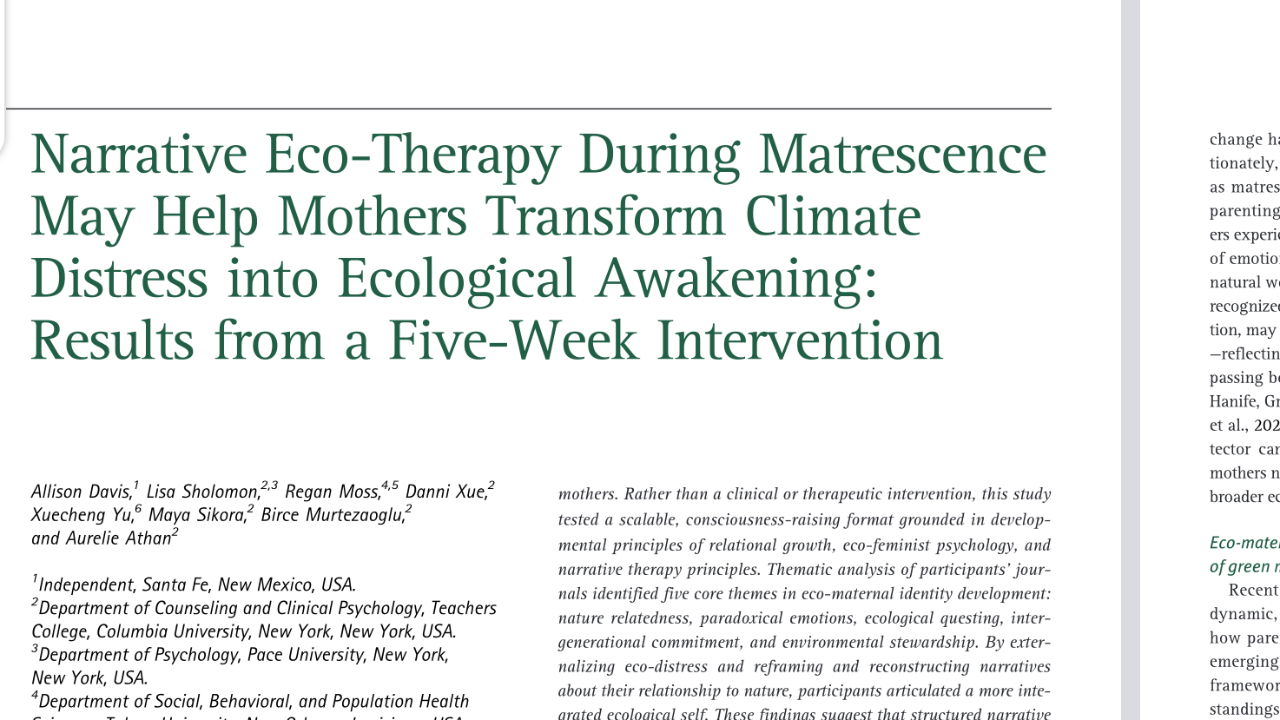Summary of “ Narrative Eco-Therapy During Matrescence May Help Mothers Transform Climate Distress into Ecological Awakening: Results from a Five-Week Intervention”

This pilot study explored how new mothers experiencing eco-distress during matrescence—the developmental transition into motherhood—might transform that distress into ecological awakening. Over five weeks, mothers participated in a feminist psychoeducational group grounded in ecofeminist psychology and narrative therapy. Weekly journaling prompts invited them to reflect, externalize their distress, and “restory” their ecological identities.
What We Found
Five themes of eco-maternal identity development emerged:
- Nature Relatedness – rediscovering belonging with the Earth.
- Paradoxical Emotions – holding grief and hope in tension.
- Ecological Questing – searching for meaning and aligned action.
- Intergenerational Commitment – linking ancestral care with future generations.
- Environmental Stewardship – translating values into daily ecological care.
“This journey into motherhood has made me feel like I’m part of something much bigger—part of a cycle that includes everything, from the earth to my baby’s first breath.” – Participant journal
Why It Matters
Rather than pathologizing eco-distress, this study reframes it as a developmental signal—a call to deepen connection with the natural world. Structured narrative reflection helped mothers move from immobilization and guilt toward resilience, agency, and ecological belonging.
Matrescence may therefore represent a sensitive period for ecological identity formation, positioning mothers as vital leaders in cultural responses to the climate crisis.

